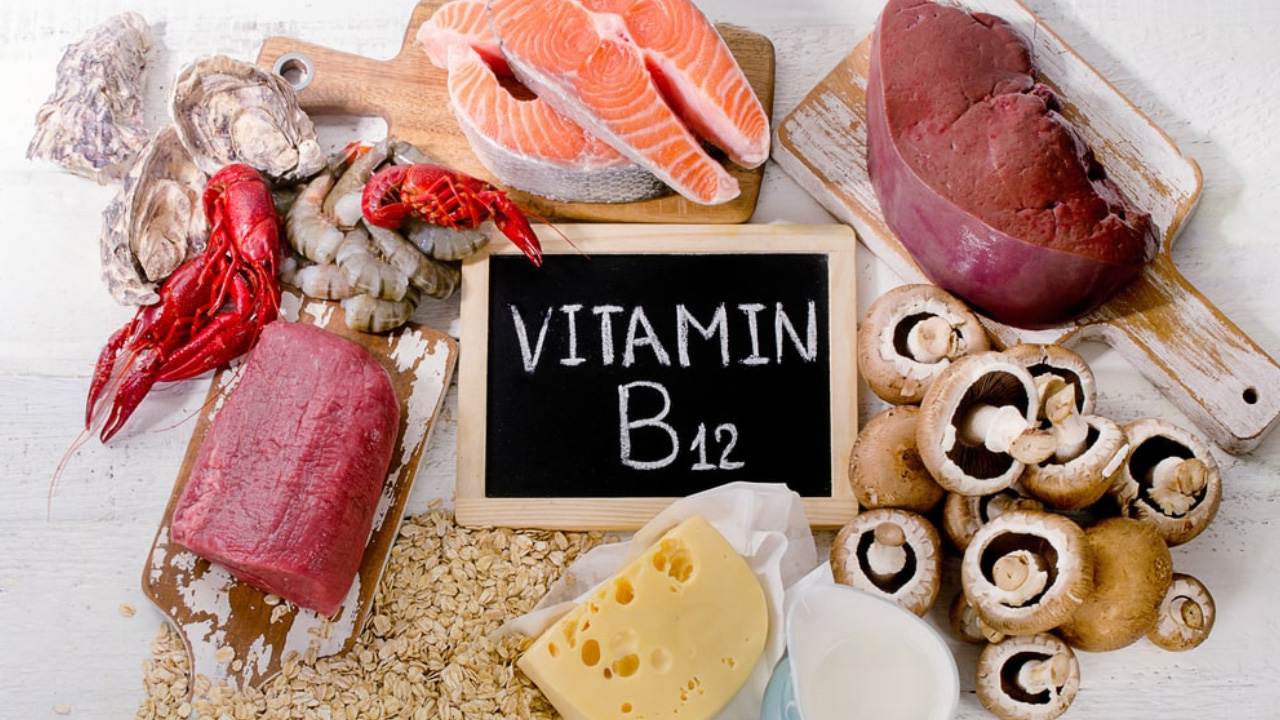Vitamin B12 is an essential vitamin that is needed to convert food into fuel. It not only helps the body to convert carbohydrates into energy but also helps the body in utilizing fats and proteins too. In India, a large percent of the population is pure vegetarian and vitamin B12 sources are mainly animal products. Even non-vegetarians do not eat it on a regular basis. Thus, masses are deficient.
Vitamin B12 role
One of the important roles of vitamin B12 is to maintain healthy blood and nerve cells. Adequate intake of vitamin B12 is required for bone health. The deficiency of this vitamin increases the risk of muscles and bone disorders like gout, arthritis, or osteoporosis. Vitamin B12 deficiency affects your overall physical and mental health. The vitamin is also essential for healthy skin, hair and nails.
Vitamin B12 is a water-soluble vitamin. The recommended daily allowance of vitamin B12 varies for age. Pregnant and breastfeeding moms require more of this nutrient.
- 0-6 months – 0.4 mcg/day
- 7-12 months – 0.5 mcg/day
- 1-3 years – 0.9 mcg/day
- 4-8 years – 1.2 mcg/day
- 9-13 years – 1.8 mcg/day
- 14-50 years – 2.4 mcg/day
- Pregnant ladies – 2.6 mcg/day
- Breastfeeding mom – 2.8 mcg/day
Signs and symptoms of vitamin B12
- Weakness, tiredness, and lightheadedness
- Pale skin
- Shortness of breath
- Constipation, loss of appetite, diarrhea, and gas
- A smooth tongue
- Vision loss
- Mental disorders like depression, memory loss, or behavioral changes
- Numbness, tingling, or muscle weakness
Who is at increased risk?
Most vegetarians and vegans are at increased risk of this nutrient because vitamin B12 sources are mainly animal-based, plant-based food products do not contain vitamin B12. Vegetarians need to increase the intake of fortified foods and supplements. Other than being vegetarian, people having a poor diet or following a fad diet or those who take specific medications makes it difficult for them to absorb this nutrient and increase the risk of deficiency.
- Atrophic gastritis - stomach lining gets thin.
- Medical conditions like Crohn’s disease, glossitis, and swollen or inflamed tongue.
- Pernicious anemia disables the body to absorb vitamin B12.
- Alcohol misuse or heavy drinking makes it hard for the body to absorb nutrients.
- Immune system disorder.
- Certain types of medicines like proton pump inhibitors, H2 blockers, and some diabetes medicine.
Sources of vitamin B12
Some common sources of vitamin B12 are – milk, fortified cereals, eggs, salmon, yogurt, beef, mushrooms, liver and kidneys, clams, nutritional yeast, etc.

 A large percent of India is vitamin B12 deficient as the sources are mainly animal-based products. Plant-based products hardly contain this nutrient. It's essential to consume an adequate amount of vitamin B12 sources for good bone health. Let's know some vegetable sources that can fulfill the requirements of nutrients.
A large percent of India is vitamin B12 deficient as the sources are mainly animal-based products. Plant-based products hardly contain this nutrient. It's essential to consume an adequate amount of vitamin B12 sources for good bone health. Let's know some vegetable sources that can fulfill the requirements of nutrients.










.jpeg)



.jpeg)
.jpeg)

.jpeg)


.jpeg)



.jpeg)
.jpeg)
.jpeg)


.jpg)

